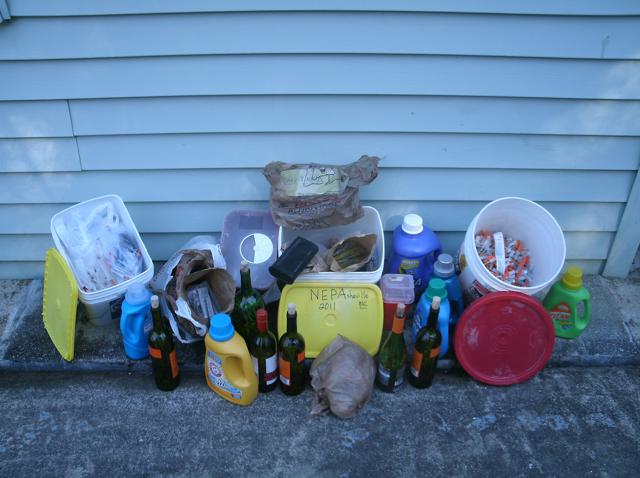Since 1994, the Needle Exchange Program of Asheville has been doing what it can to give community members access to harm-reduction supplies such as condoms, clean needles, cookers, cotton, alcohol swabs, antibiotic ointment, tourniquets and disposal containers. NEPA also gives referrals to HIV and hepatitis testing and counseling as well as substance-use/abuse treatment centers, and we try to offer participants hope for another safe and healthier day.
Each month, NEPA distributes about 2,000 new needles — mostly, but not always, in exchange for an equal number of used ones. People from as far away as Cherokee County and as close as downtown Asheville contact us, due to the barriers across North Carolina to over-the-counter sales of needles without a prescription. It’s a poor stance on public health when unjust and unjustifiable laws prohibit anyone from having access to these services — but it’s not necessarily the law that creates all the barriers.
Recently, a French gentleman described the policy change on needle access in his country of birth when the minister of health noted the high number of HIV and hepatitis infections occurring among people who used needles — shared needles — years ago. The new policy obligated pharmacists to sell needles to anyone who wanted them, no questions asked, while also providing some education about safety and proper disposal.
Some might argue that we’re not in France. But they cannot argue that our current policies are good for public health in general. Needle users: Lock ’em up, you say? Well, that’s not good for public health either.
At what point does one lose one’s humanity? Will we ever be able to simply see one another as human beings first? What makes someone despise another so easily? Who’s to judge one’s brother or sister, neighbor or co-worker, friend or foe?
Meanwhile, poor public-health policies cost us so much money. Unnecessary new HIV and hepatitis infections cost us so much money! In comparison, buying 2,000 needles each month costs so little money, so NEPA will continue to buy them in bulk — probably with little gratitude from Raleigh — until the state gets the law correct and starts taking public health seriously. Legislators and other policymakers are culpable if they continue to oppose scientifically proven public-health measures such as needle exchange as a component of a comprehensive harm-reduction strategy.
With continued support and collaboration in our progressive region of the state, and with progressive-thinking law-enforcement administrations, supportive health directors, collaborative agencies and well-informed people of good will, we can continue to be the model of harm reduction that has existed here in Asheville for almost two decades.
Spread the word, not a new infection: Don’t share needles. Dispose of them properly. Get tested for hep C and HIV. Contact NEPA if need be.
— Michael Harney has worked in the field of HIV/AIDS/STD/hepatitis-prevention education since 1992. To contact NEPA, call 274-8397.




Before you comment
The comments section is here to provide a platform for civil dialogue on the issues we face together as a local community. Xpress is committed to offering this platform for all voices, but when the tone of the discussion gets nasty or strays off topic, we believe many people choose not to participate. Xpress editors are determined to moderate comments to ensure a constructive interchange is maintained. All comments judged not to be in keeping with the spirit of civil discourse will be removed and repeat violators will be banned. See here for our terms of service. Thank you for being part of this effort to promote respectful discussion.